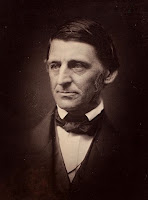Lawlessness of Writing: Navigating the Creative Abyss According to Naomi Wood
by Olivia Salter
In a world where structure and order govern our daily lives, writing stands as a rebellious outlier. It defies conventions, scoffs at boundaries, and dances on the edge of chaos. Naomi Wood, the acclaimed author of Mrs. Hemingway, eloquently encapsulates this truth: “No one ever tells you that: that there’s no method. Writing’s a lawless place.” This evocative statement by Naomi Wood captures the essence of the writer’s journey—a wild, uncharted terrain where rules dissolve, and creativity reigns supreme.
The Myth of Method
We grow up believing in the myth of method—the idea that creativity follows a neat blueprint. We envision writers hunched over desks, diligently plotting their novels, adhering to a step-by-step process. But reality laughs at our naivety. Writing, like life, is messy, unpredictable, and gloriously untamed.
The Blank Page Beckons
Imagine facing a blank page—a vast expanse of white, devoid of rules or signposts. Here, ink becomes magic, and words weave spells. Writers plunge into this abyss, armed not with a compass but with intuition. They grapple with uncertainty, knowing that the next sentence might birth brilliance or unravel their entire narrative.
The Rebel Wordsmiths
Literary giants—Hemingway, Woolf, Morrison—were rebels. They defied norms, shattered expectations, and carved their own paths. Their prose flowed like jazz improvisations, unburdened by rigid structures. They knew that writing’s essence lay in its lawlessness—the ability to surprise, provoke, and resonate.
The Dance of Discovery
Writing unfolds like a dance. Sometimes it’s a waltz, elegant and deliberate; other times, a frenetic tango. Characters rebel, plots twist, and metaphors pirouette. The writer follows, trusting instincts, chasing elusive muses, and surrendering to the rhythm of creation.
The Liberation of Chaos
In this lawless realm, chaos becomes liberation. Sentences break free, metaphors collide, and unexpected alliances form. The writer becomes an alchemist, turning chaos into gold. The method? There isn’t one. Only the relentless pursuit of truth, beauty, and authenticity.
In conclusion, dear writer, embrace the lawlessness. Revel in the absence of method. Let your words roam wild, unbridled, and free. For in this untamed space, you’ll discover your voice—the one that defies rules, paints galaxies, and whispers secrets to the stars.
Naomi Wood knew it: Writing isn’t a method; it’s a rebellion. And within its lawlessness lies our greatest stories.
Remember, there’s no map here—only the compass of your heart.
Note: Naomi Wood, a British novelist and short story writer, invites us to abandon the safety of method and plunge into the chaos of creativity. Her own works, including “The Godless Boys” and “Mrs. Hemingway,” echo this sentiment.




.jpg)


